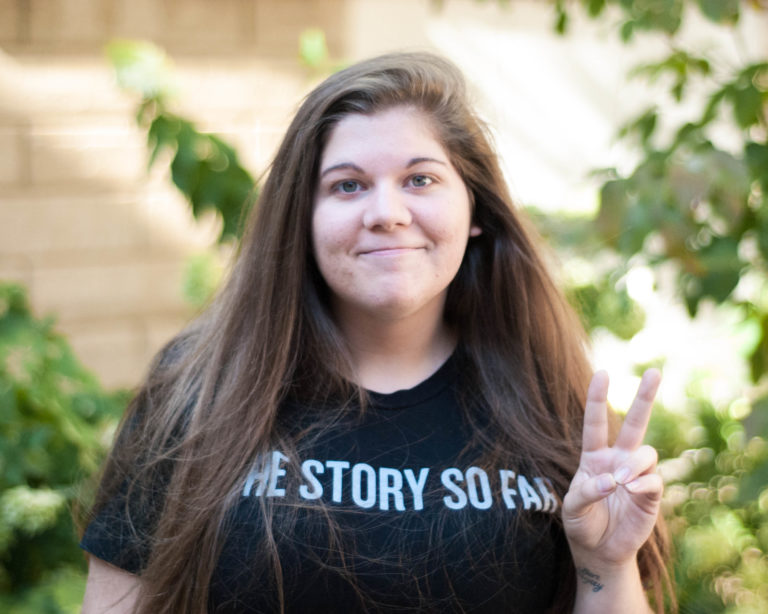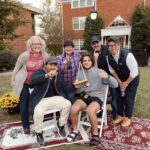By Megan Gieske, Contributing Writer
Tattoos have historically been a symbol of power.
Totally subverting female norms, women began arguing they could withstand the pain of the tattooing process originally reserved for men. In recent history, there has been a rise of women choosing a tattoo to reclaim power.
Senior Angela Burns pointed to the word, “nivchara” for “chosen” in long, black strokes of Hebrew writing on her right ankle and said, “I was still chosen.”
“I was born to a Jewish mother and a Roman Catholic father,” Burns said. “Ask me how that works. It doesn’t.” Her home was defined by a drunk and abusive father. But “I wouldn’t really change it because it gives me perspective,” she said.
[perfectpullquote align=”right” cite=”” link=”” color=”” class=”” size=””]“It’s a beautiful phrase that means ‘peace be with you and it’s a peace that you can’t grasp or understand; it’s the peace of God.”[/perfectpullquote]
After ten years, her biological parents relinquished their rights to her, placing her in the foster care system. Burns described this feeling of being “uprooted,” that “should not be experienced by anyone.”
Soon after, she had an adoptive father who told her, “If you want to be adopted, we’ll do whatever it takes to adopt you.”
I asked Burns for one image that stood out to her as communicating her family history.
“All of the Jewish heritage I knew, that and broken Yiddish because my biological mother liked to yell to us in broken Yiddish,” Burns said.
As a way to hold on to her cultural heritage and identity as a Jewish woman, she sometimes makes challah, a sweet bread.
The delicious eggy bread is beaten from honey, oil, eggs, salt and flour, then the dough thickens as its kneaded. It’s a beautiful braided bread that often is covered by a white cloth to symbolize the dew that collected on the manna. There’s an attitude of waiting, just like in Burns’ own life, a “leaning on Christ to answer our prayers in that,” as Burns said, “and He definitely did.”
“I remember my Dad just recently told me (that) before we were adopted, he was learning about the Jewish people and Israel,” Burns said. “He prayed that he could bring God’s people to Christ. He ended up adopting two Jewish girls,” Burns said, “and definitely showed the love of Christ.”
When looking at Burns, you’re not looking at her tattoos but at an expression of an idea that our stories will always be a part of us. She’s exhibiting something that’s real and important, her memories, on her physical body.
“Because my younger sister (Kylen) is a fan of art, she wanted to try ‘stick and poke,’” Burns said of a tattoo technique that involves a sterile sewing needle and ink. “The flowers (lavender and chamomile) were an off the cuff thing,” one of two tattoos she has to remind her to breathe.
The other, on her left wrist, is Haitian Creole for “a good thing.” In life, “even though it seems like it’s going to be hard, it’s a good thing,” Burns said.
What I really wanted to ask her about was her use of the common Hebrew greeting/farewell, “Shalom.”
“It’s a beautiful phrase that means ‘peace be with you,’” Burns said, “and it’s a peace that you can’t grasp or understand; it’s the peace of God.”
When I asked Burns if she planned to visit Israel, she said excitedly, “Yes!” She’s applied for the Birthright program, which returns the Jewish diaspora to their holy land.




